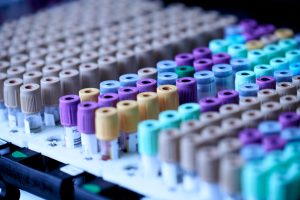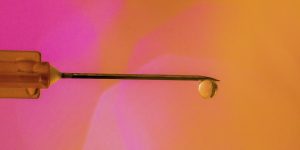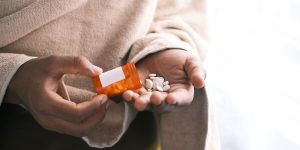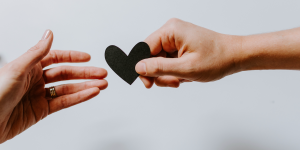Horses hold a powerful and essential role in equine therapy as both a member of a team and as a mirror to someone’s own self-discovery and progress. Recovery from an addiction to drugs or alcohol is a difficult journey that’s not always easy to share with another person. Equine therapy uses horses in several ways to instill the skills necessary for an effective recovery.
Different people require different approaches to the recovery process, and equine therapy can be just one element used in someone’s recovery. Using horses in place of people can help develop the introspective healing process while maintaining someone’s own sense of safety.
Safe Spaces with Horses
Horses create a moment that only exists in the present. They aren’t able to judge someone on their past actions, physical appearance, sexual orientation, or anything other than how the person is interacting with them at that moment. Because of this, they create a truly neutral, safe space for expressing emotions without concern about how they will be perceived.
This safety is required for people to gain confidence in opening up with their vulnerabilities. Horses provide a way to do that while still maintaining a degree of privacy. Horses are more in tune with non-verbal communication, meaning that people can freely express themselves through equine interaction. In this way, horses provide a safe and free space to explore one’s own emotions.
Mirrors of the Self
Horses are well in-tune with the emotions of the people around them. They can mirror someone’s sadness when they’re feeling depressed or reflect their anxieties during an anxiety attack. For this reason, horses allow people to see themselves and their own behaviors.
Understanding someone’s personal concerns and fears, or any of their overall moods during recovery, is not always easy. Addiction recovery requires a lot of introspective exploration. However, having a physical mirror can be the first step in understanding someone’s emotions, and thus better understand their own recovery path.
Horses can also be used to mark a person’s progress. In the same way that they reflect anxieties, they also reflect happiness, trust, and compassion. This ability has one decisive advantage: providing a sense of worth to the person. If someone practices their interactions with a horse in a healthy, positive way, the horse will respond in turn with positive interactions of their own.
This creates the feeling of being invited and welcome and instills a sense of personal value. A feeling of worthlessness can plague the recovery process. Having a horse around to demonstrate self-worth can change the outlook of a person in recovery.
Practicing Non-Verbal Communication
Communication is a crucial part of recovery. Being able to articulate how someone is feeling and what they need can significantly improve the entire situation. However, communication is more than choosing the right words. Horses help focus on the less commonly practiced aspects of communication – tone and body language. These elements are essential to effective communication. How one holds themselves during a conversation can drastically change the outcome of the interaction.
Responsibility and Focus
Having something that requires a lot of focus and determination is critical in keeping the mind and body busy. A horse’s imposing stature requires someone to give them all of their attention. The responsibility that comes with caring and interacting with a horse is substantial.
Still, focusing on the horse keeps the mind away from other, more detrimental pastimes. Avoiding old behaviors is essential in establishing a new routine alongside sobriety. Responsibility will be a crucial skill outside of recovery as someone reintegrated into the real world and pursues their own goals and professions.
Horses create a safe way to practice that skill while giving immediate feedback based on the attention and care that the person can provide. Horse care can also become a positive new outlet for recovering addicts and alcoholics. New hobbies will be valuable in keeping someone safe from potential relapses and difficulties.
Overcoming Obstacles
The size and strength of a horse can be intimidating, much like the recovery process itself. However, this size means it is easy to use the horse as a metaphorical stand-in for the significant stresses in life. Using a horse in this manner allows someone to externalize their fears and interact with them directly. Being able to approach such an intimidating animal and have positive interactions can translate well into a positive outlook on the recovery process.
Building New Relationships
Because horses are so in-tune with the emotional state of people, they also provide a much-needed bridge between people and their own social needs. Isolation is a significant hurdle in the recovery process. Building trust between person and horse can break down that barrier and begin a new process of developing new, meaningful relationships, all while continuing to practice critical social skills. Emerge Recovery practices a comprehensive take on equine therapy, as well as other, personalized modes of therapy, in order to address the difficulties and life skills needed for a successful, sober future for anyone struggling with an addiction to drugs or alcohol. Equine therapy is a calm and impactful environment where people can explore their own difficulties and vulnerabilities alongside new companions and practice new coping strategies, all in order to find their own best practices and roads to success. For more information on how Emerge Recovery can help you today, contact them at 888.273.8624 or schedule a free 30-minute consultation on how recovery at Emerge Recovery may work for you.












